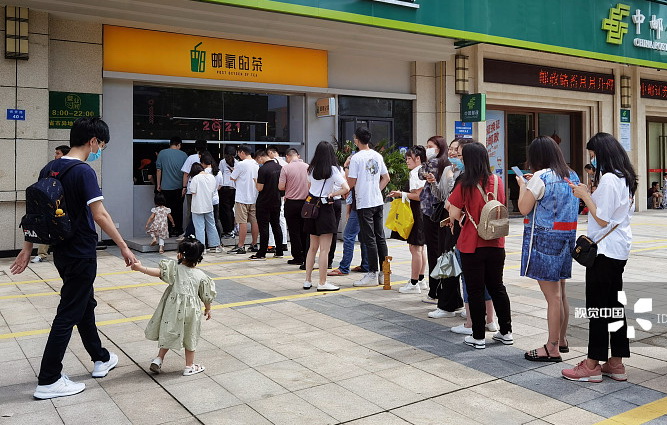Milk tea taking domestic market by storm
By ZHU WENQIAN in Beijing and HU MEIDONG in Fuzhou | CHINA DAILY | Updated: 2021-07-16 10:22

Meanwhile, orange soda drink retailer Beibingyang (meaning: Arctic Ocean), a brand rolled out in 1936 from an old ice-making factory in Beijing, recently opened its first milk tea store in the capital's Daxing district close to company headquarters.
Besides selling different drinks, the store also offers pastries, chocolates and some derivative products such as umbrellas and shirts.
Beibingyang hopes to attract more attention and help market its main business by opening a milk tea store. However, the company is unlikely to expand further into the milk tea business. The supply chain and store management of freshly made drinks would be a brand-new challenge compared to its original business, said Xiao Yao, partner at Ries, a global consulting group.
In addition, Swisse, an Australian vitamin and supplement brand, has opened three milk tea stores in Shanghai. The stores, named Swisseland, focus on maintaining beauty and staying young. They also sell supplements such as drinks with collagen proteins and sesame mixed in.
Swisse has been taking advantage of the reputation of its main business and taking a path of differentiated competition. Most consumers of milk tea in China are females born after 1990. The age group is willing to purchase new types of foods and drinks that focus on healthy living, low sugar and products that improve physical appearance.
"Swisse has a clear advantage in differentiating its products from others by selling drinks combined with supplements. Its brand reputation and discussions of milk tea stores can help generate customer flow. If it can offer drinks with good quality and taste, it would be easy for the company to draw more consumers," Zhang said.
Still, for companies whose main business is not beverage retail, their operations of milk tea stores will be limited to their original brand positioning. Consumers are unlikely to have a deep impression of their milk tea business, Zhang added.
Compared with China's leading milk tea chains Heytea, Coco and Nayuki, the milk tea business of other companies will have difficulty achieving market scale and having a noticeable impact on experienced brands. The operational efficiency of nonprofessional milk tea brands is likely to be affected by their main business, and resource allocation skills may not be in place perfectly, Zhang said.
As of September last year, China had 340,000 milk tea stores, including about 3,200 high-end shops, according to a research report by Zhongtai Securities.
Among total milk tea plays, more than 50 brands received funding from investors, and investment has often been made since 2016, according to Qichacha, a company that tracks business registrations.
In the first half, total value of disclosed investment in milk tea stores reached 5.34 billion yuan. Last year, the total disclosed value stood at 1.7 billion yuan, said Qichacha.
























